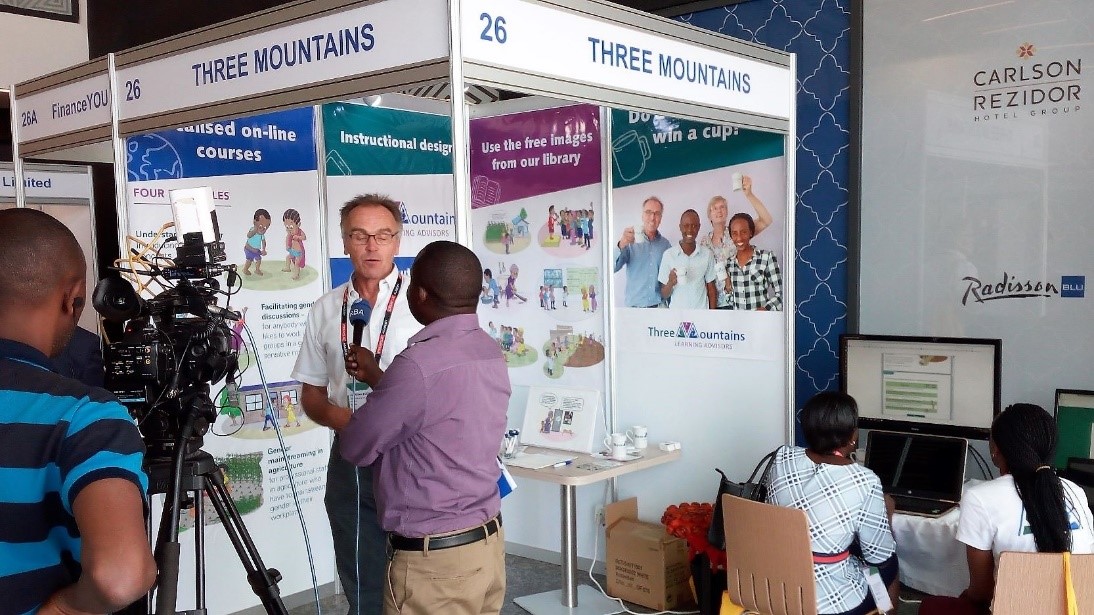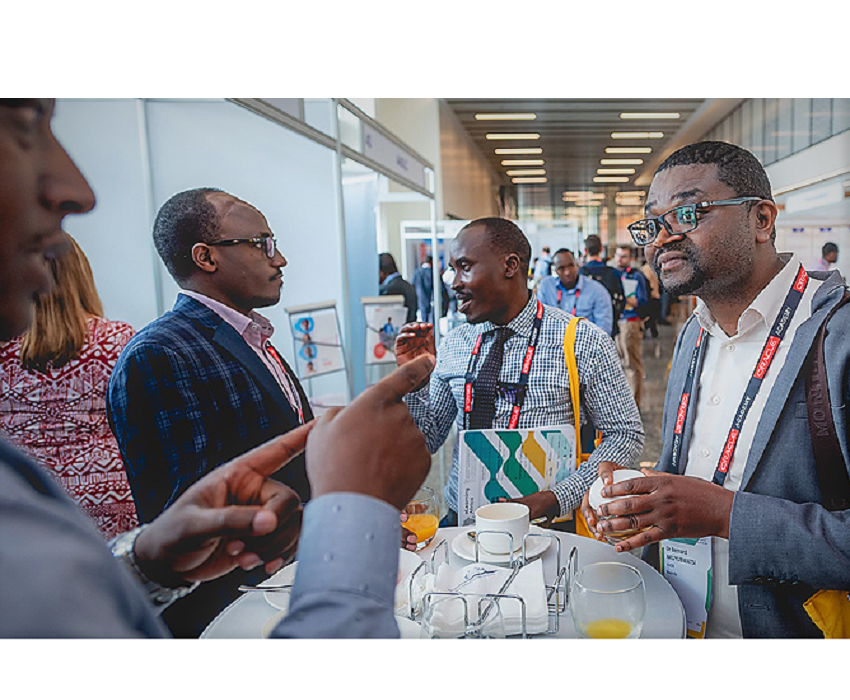E-learning Africa
November 12th, 2018
In 2016, we started the Rwanda E-learning Network (REN). One of the goals was to get the eLearning Africa conference to Rwanda. We set a goal for 2019, but we surpassed ourselves, hosting it in September 2018. Experts and companies came from all over the world to discuss their ideas about what e-learning could mean for the development of the continent.
A lot of big words were used in large scale discussions with hundreds of people, and a lot of workshops took place where people shared their experiences. We saw it as a great opportunity to boost our business, so we bought tickets for the whole team. We hired an exhibition booth, Gerry facilitated a workshop, and Jan Willem led two small round-table knowledge exchange sessions.
Did all these efforts pay off?
Definitely. Our stand was a success. We showcased our free online gender training materials in English and Kinyarwanda. Nehemie made a seven-question quiz which people really enjoyed doing. We got a lot of compliments on the quality of our material and how interactive the content was. People told us they learned a lot about gender from just those seven questions.
Preparing to participate in the conference, and (wo)manning our stand, was a good team-building exercise. Everyone contributed equally.
Did our participation generate new business?
We exchanged a lot of cards. Some contacts may lead to new things, but not in the short-term. Let’s say the new leads we got were less concrete than we had hoped.
 Press at our stand.
Press at our stand.
We had hoped to get connected to e-learning networks in other African countries, but no one came to our round-table on the subject. Apparently, what we have here in Rwanda is quite unique. This makes us even more determined to take our Rwanda E-learning Network to the next level. More about that next time.
Content-wise, I did not hear many new things. Two years ago, Gerry, Ariane and myself attended the same conference in Cairo. The messages are still the same: the continent is struggling with poor internet coverage and slow connectivity, there is a lack of computer literacy among the population and there is a need for more ‘localised’ content, meaning using images, videos, experiences and examples reflecting the daily realities of the learners.
As far as hardware is concerned, it seems that all governments count on big mobile phone providers to pave the way for full coverage in their countries through 3G, 4G and glass-fibre connections. They aren’t showing much interest in solar-powered, stand-alone Wi-Fi servers for schools. These kinds of intermediate solutions are considered unsustainable and something of a hobby for NGOs. Personally, I think this is a missed opportunity to rapidly improve the quality and availability of educational supports for teachers in remote areas.
Some exhibitors showcased learning management systems for schools, sometimes combining access to international libraries and content providers. Three Mountains was the only company exhibiting local content.
Despite that, many speakers, including the Rwandan Minister of ICT, Honourable Jean de Dieu Rurangirwa, stressed the need for content to be interesting, interactive, and adapted to local circumstances.
What is our conclusion?
- We will have to stick it out until content development comes to the forefront of the e-learning scene in Africa.
- Once people understand how our e-courses work, they tend to really like them. They are Rwanda made, full of local content, images and videos and highly interactive.
- Marketing what we have is still a challenge, and we need to improve on that.
It is a pity the minister did not visit our stand, but I hope he will check out the e-courses on our website. Why don’t you take a look, too?
Jan Willem Eggink

